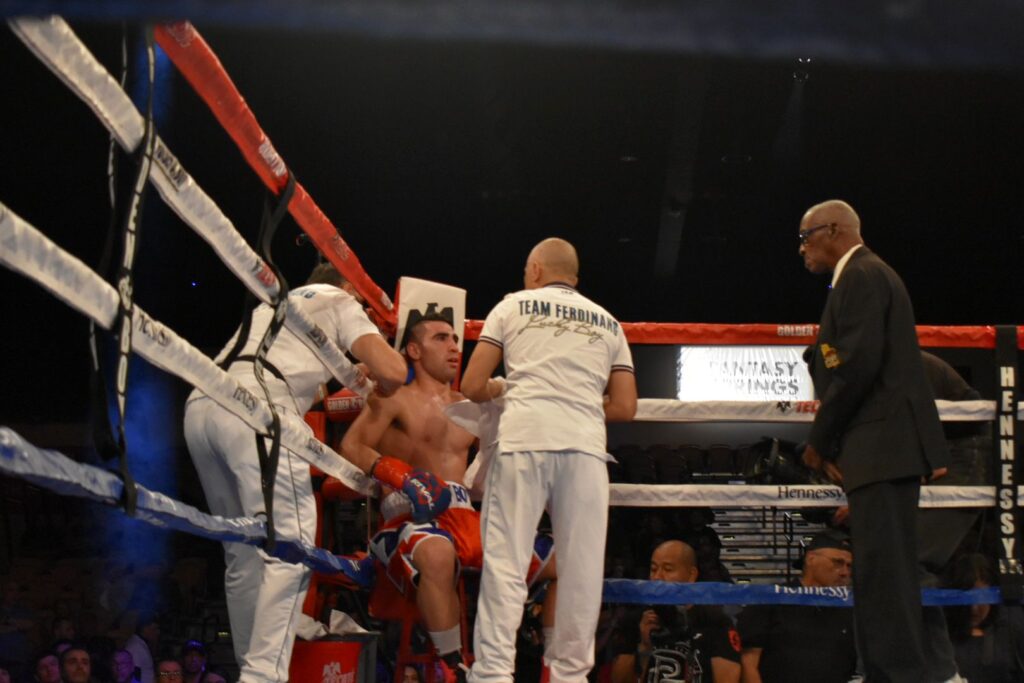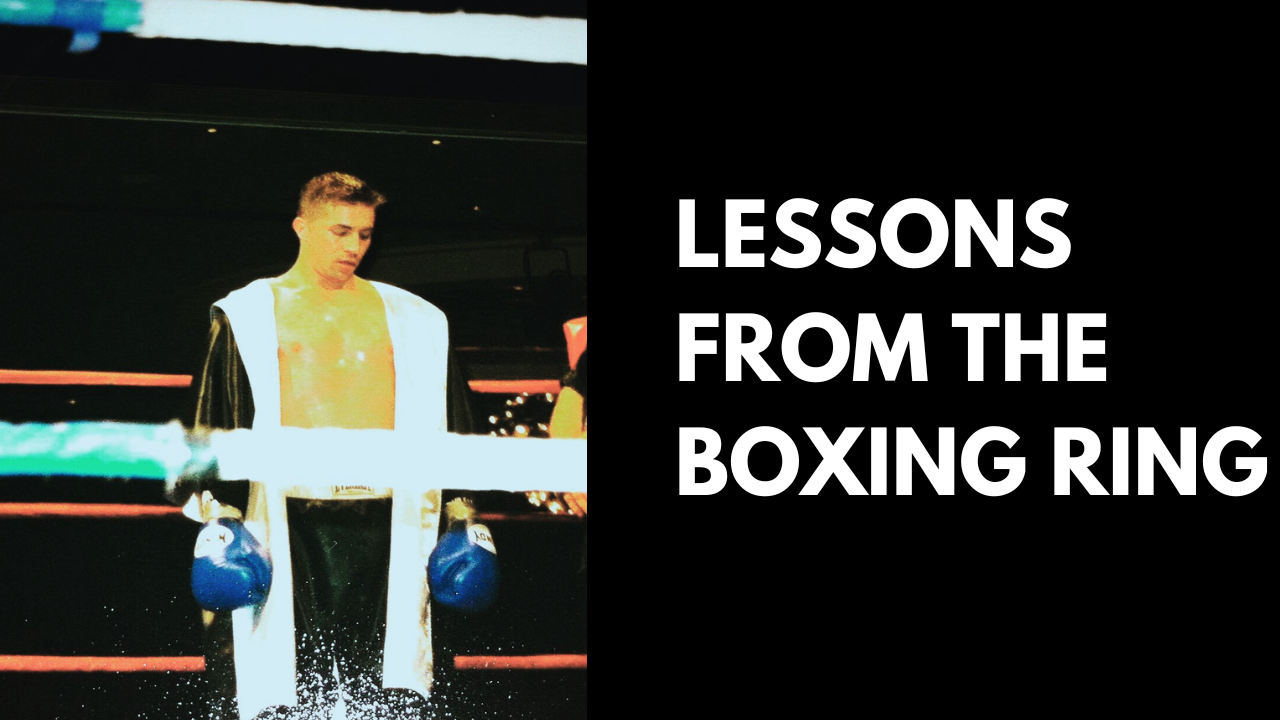Boxing is a sport that requires immense discipline, dedication, and mental fortitude. The lessons learned in the boxing ring can be incredibly valuable in the business world, particularly for entrepreneurs striving to build and grow their ventures. In this blog, we will explore how the discipline of boxing can shape successful entrepreneurs, drawing parallels between the rigors of the sport and the challenges of entrepreneurship.
The Importance of Discipline and Consistency

1. Daily Training and Routine: Boxers adhere to a strict training regimen that includes daily workouts, sparring sessions, and a carefully planned diet. This level of discipline is essential for achieving peak physical condition and readiness for a fight. Similarly, entrepreneurs need to establish a consistent routine to stay productive and focused. Whether it’s setting daily goals, maintaining a regular work schedule, or continuously learning, consistency is key to long-term success.
2. Overcoming Challenges: In boxing, athletes face numerous challenges, from grueling training sessions to the mental pressure of competition. Entrepreneurs encounter their own set of obstacles, such as financial setbacks, market competition, and business uncertainties. The discipline honed in the boxing ring teaches entrepreneurs to face challenges head-on, remain resilient, and persist despite difficulties.
Developing Mental Toughness and Resilience
1. Handling Pressure: Boxers are trained to perform under immense pressure, whether it’s the pressure of a big match or the physical demands of a tough opponent. This ability to stay calm and focused under stress is crucial for entrepreneurs who must navigate high-stakes situations, make critical decisions, and manage the ups and downs of business life.
2. Embracing Failure: Failure is an inherent part of boxing; even the greatest champions have experienced losses. What sets successful boxers apart is their ability to learn from defeat, make necessary adjustments, and come back stronger. Entrepreneurs, too, must embrace failure as a learning opportunity. Each setback provides valuable lessons that can lead to better strategies and smarter decisions in the future.
Strategic Thinking and Planning

1. Game Plan and Adaptability: Boxers enter the ring with a game plan tailored to their opponent’s strengths and weaknesses. However, they must also be adaptable, ready to change tactics if the situation demands it. Entrepreneurs benefit from having a clear business plan but must remain flexible and open to pivoting when market conditions or customer needs change.
2. Analyzing Competition: Successful boxers study their opponents meticulously, watching past fights and analyzing their techniques. This competitive analysis helps them develop strategies to exploit their opponent’s weaknesses. Entrepreneurs can apply the same principle by conducting thorough market research, understanding their competitors, and identifying unique value propositions that set their business apart.
Physical and Mental Health
1. Importance of Physical Fitness: Boxing emphasizes the importance of physical fitness, as a strong and healthy body is essential for peak performance. Entrepreneurs often face long hours and high stress, which can take a toll on their health. Prioritizing physical fitness through regular exercise, a balanced diet, and sufficient rest can improve overall well-being and enhance productivity.
2. Mental Health and Focus: Mental health is equally important in boxing, where focus and mental clarity can determine the outcome of a fight. Entrepreneurs need to maintain their mental health by managing stress, seeking support when needed, and practicing mindfulness or meditation. A clear and focused mind leads to better decision-making and a more balanced approach to business challenges.
Building a Support Network
1. Coaching and Mentorship: Boxers rely on coaches and trainers to guide their training, provide feedback, and develop strategies. Similarly, entrepreneurs benefit from having mentors and advisors who can offer guidance, share experiences, and provide valuable insights. Building a strong support network is crucial for personal and professional growth.
2. Team Collaboration: While boxing may seem like an individual sport, it involves a team effort, including trainers, nutritionists, and medical staff. Entrepreneurs, too, need to build and nurture a collaborative team. Delegating tasks, fostering a positive work culture, and encouraging teamwork can drive business success and innovation.
Perseverance and Long-Term Vision
1. Commitment to Long-Term Goals: Boxers train for years to achieve their goals, demonstrating unwavering commitment and perseverance. Entrepreneurs must also be committed to their long-term vision, understanding that building a successful business takes time, effort, and patience. Staying focused on the bigger picture helps navigate short-term setbacks and maintain motivation.
2. Celebrating Small Wins: In boxing, every small improvement, whether it’s a faster punch or better footwork, is celebrated as progress. Entrepreneurs should also recognize and celebrate small wins along their journey. Acknowledging achievements, no matter how minor, boosts morale and keeps the momentum going.
Real-Life Examples and Success Stories
1. George Foreman: After retiring from boxing, George Foreman successfully reinvented himself as an entrepreneur, famously endorsing the George Foreman Grill. His discipline, resilience, and strategic thinking from boxing translated into a thriving business career, making him a household name and a successful businessman.
2. Laila Ali: Laila Ali, daughter of boxing legend Muhammad Ali, built a successful career in both boxing and business. She leveraged her fame and discipline from boxing to become an entrepreneur, author, and motivational speaker, inspiring others with her story of perseverance and success.
3. Manny Pacquiao: Manny Pacquiao, a world-renowned boxer, has also made significant strides in the business world. He has invested in various ventures, including sports promotions, media, and real estate. Pacquiao’s journey from the boxing ring to entrepreneurship showcases the transferable skills and mindset required for success in both arenas.
Conclusion
The discipline, resilience, and strategic thinking developed in the boxing ring are invaluable traits for entrepreneurs. The lessons learned from the sport—handling pressure, embracing failure, maintaining physical and mental health, building a support network, and committing to long-term goals—can significantly enhance an entrepreneur’s ability to navigate the challenges of the business world.
By drawing parallels between boxing and entrepreneurship, aspiring business owners can gain a deeper understanding of the qualities needed for success. Whether you’re stepping into the ring or launching a new venture, the principles of discipline, perseverance, and strategic planning remain essential. Embrace these lessons, and you’ll be better equipped to face the entrepreneurial journey with confidence and determination.

